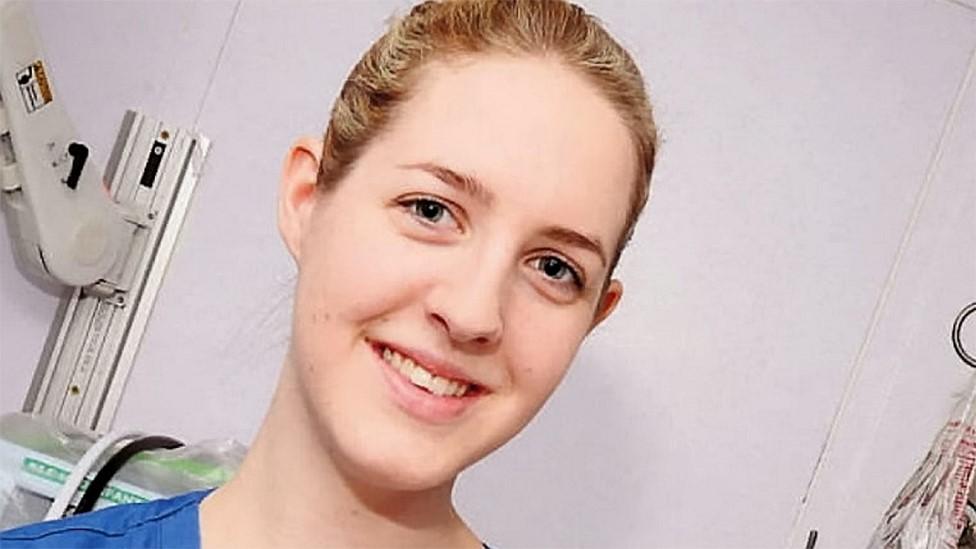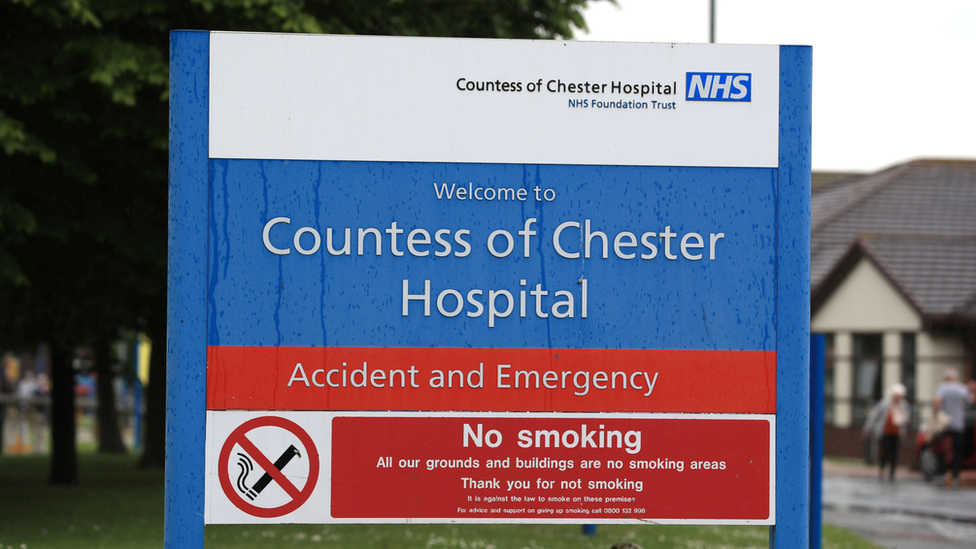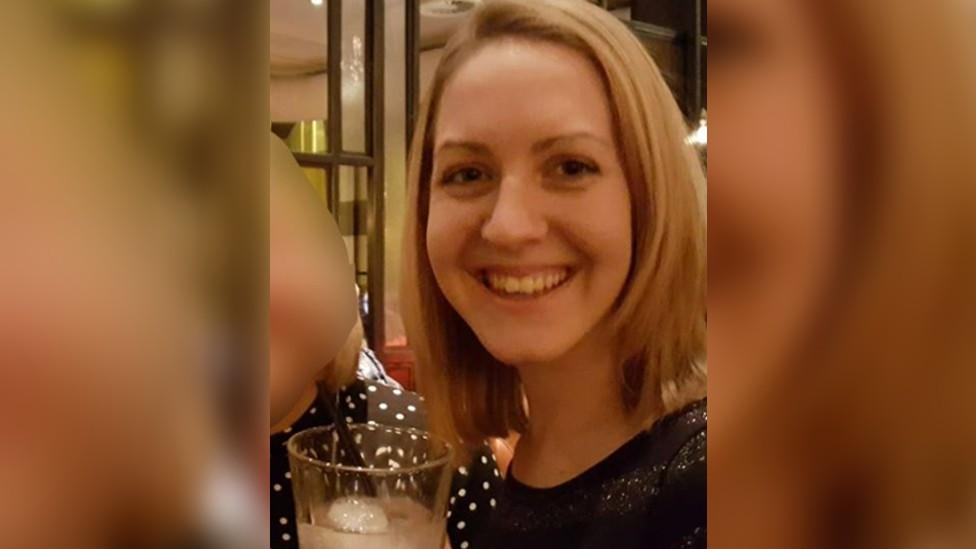Lucy Letby: Baby was stable the day before she died, jury told
- Published

Lucy Letby is accused of murdering seven babies and trying to kill 10 others
A senior doctor has told jurors at Lucy Letby's murder trial that a baby was "making good progress" and clinically "stable" the day before she died.
It is alleged nurse Ms Letby injected air into the bloodstream of the baby, known as Child D, at Countess of Chester Hospital in June 2015.
She is accused at Manchester Crown Court of murdering seven babies and attempting to murder 10 others at the hospital between 2015 and 2016.
Ms Letby, 32, denies 22 charges.
Dr Sarah Rylance, a former registrar at the hospital, told jurors she was "happy" with Child D's clinical condition.

The nurse worked on the neonatal ward at Countess of Chester Hospital
Dr Rylance, who was on shift the day before Child D's death, said the infant had "a very satisfactory day" on 21 June 2015 and was improving, in good colour and not needing oxygen support.
"She had shown good improvement from the condition when I first saw her on the neonatal unit the previous evening", she said.
But when later pressed by Ben Myers KC, defending Ms Letby, Dr Rylance agreed Child D was an "unwell baby".
Mr Myers summarised for the court that Child D's mother had her waters break 60 hours before giving birth and that Child D was "floppy" and at risk of collapse at birth.
He also noted how she required breathing support on a ventilator at one point.
Addressing Dr Rylance, Mr Myers said rather than being "normal", there was quite a lot "abnormal" with Child D.
Dr Rylance agreed that Child D was "not a healthy baby at this point in time".
Mr Myers went on to say that infection was a "leading cause" in neonatal deaths and can "develop very quickly" and that antibiotics should be provided within an hour of birth.
Dr Rylance responded: "There are different guidelines on whether babies should receive antibiotics, with clinical risk factors.
"When you have concerns, then you want the antibiotics as soon as possible."

Lucy Letby, originally from Hereford, denies 22 charges against her
Mr Myers said Child D was not given antibiotics until nearly four hours after the birth.
"You may not be responsible, but that falls below the standard of care for a newborn baby, doesn't it?" he said.
"Yes," Dr Rylance responded.
The court later heard a statement from Dr Emily Thomas, who was working at the hospital in June 2015.
Recalling the morning of Child D's death, Dr Thomas said she believed Ms Letby was the nurse who had called for help when the infant collapsed.
Dr Thomas recalled Ms Letby being upset and the nurse saying to her: "This is my second baby that this has happened to."
Dr Thomas also recalled her then colleague Dr Andrew Brunton, who was leading resuscitation efforts, being "mortified" when a mix-up led to the mother of Child A, also allegedly killed by Ms Letby, being contacted on the phone instead of a consultant.
Dr Bruton had wanted to speak to senior colleague Dr Elizabeth Newby for advice on the resuscitation of Child D.
Dr Thomas said Dr Brunton was "shocked" when he realised the error that had been made.
The call would have been made to Child A's mother in the early hours of the morning, just two weeks after the death of her baby.
A court order bans the reporting of the identities of the children allegedly attacked by Ms Letby, while identifying parents or witnesses connected with the children is also not allowed.
The trial continues.

Why not follow BBC North West on Facebook, external, Twitter, external and Instagram, external? You can also send story ideas to northwest.newsonline@bbc.co.uk, external
Related topics
- Published4 November 2022

- Published3 November 2022

- Published2 November 2022

- Published28 October 2022

- Published27 October 2022
